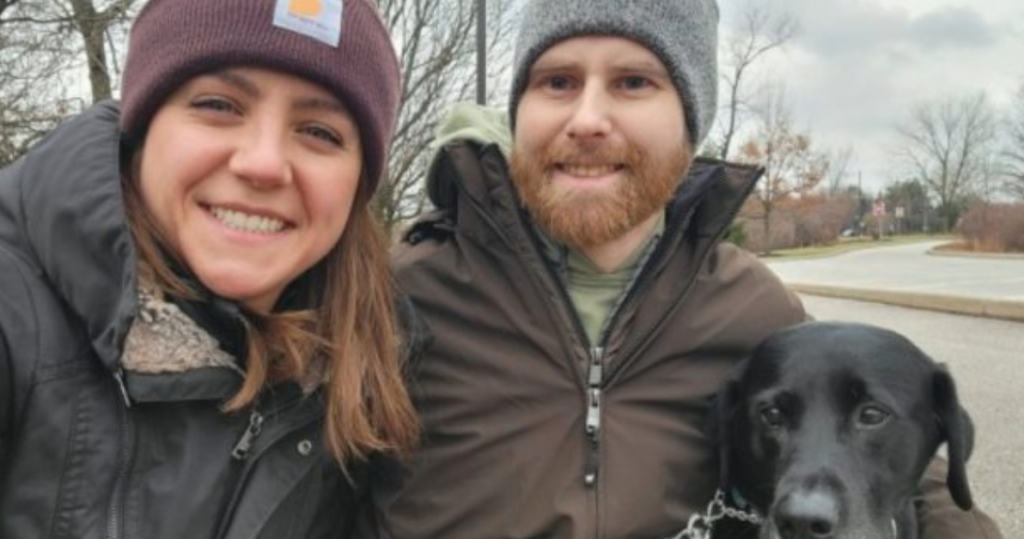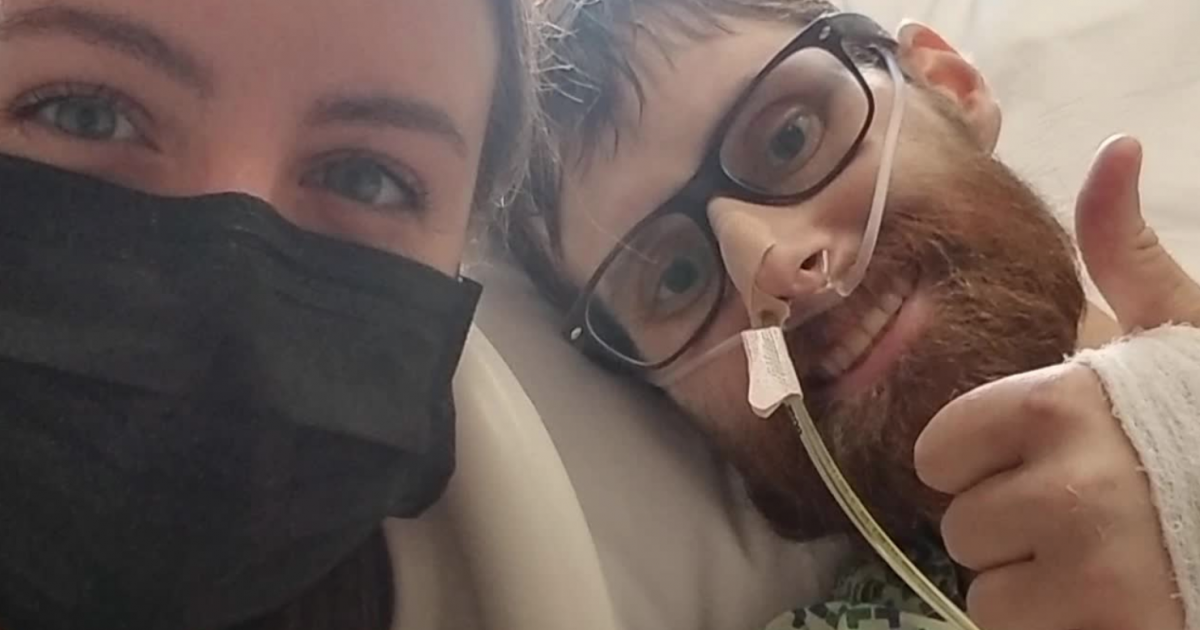A Medical Superstar
- Andrew Voge, 33, was initially told he had a hernia in 2019. Two years later, he was having a history-making multi-organ transplant for an extremely rare cancer. And he survived.
- The rare cancer, called pseudomyxoma peritonei, known as PMP, develops and spreads through the digestive organs. Andrew was told that there was a 30-40 percent chance he wouldn’t make it through.
- While chances are extremely rare for you to ever get diagnosed with this disease, keep in mind that misdiagnoses like Andrew’s “hernia” unfortunately occur all the time, so it’s up to you to advocate for your own health to make sure there’s nothing else going on beyond any lingering symptoms.
The rare cancer, called pseudomyxoma peritonei, known as PMP, develops and spreads through the digestive organs.
Read MoreThe thoughtful husband had also prepared a total of 40 hopeful notes for this wife, Rachel, to read during the intense 17-hour surgery. Then Andrew became the first person in the world to be successfully treated for PMP via multi-organ transplant.

Dr. Anil Vaidya, co-director of Cleveland Clinic's Intestinal Transplant Program who led Andrew’s 7-person surgical team, explained to the news outlet how dire his situation was.
"I must say Andy was perhaps in the worst state I've seen patients in the last ten years," he said "He had, the tumor had invaded not only the GI tract, but also had put pressure on his liver and the bile duct, and also had caused pressure effects to the blood supply to the liver."
Andrew’s PMP Diagnosis
In 2019, right after Andrew received his devastating diagnosis, a surgeon was actually able to remove 90 percent of his tumor. But the cancer returned within a year, taking over his stomach, which had stopped working. Tragically, Andrew’s chemotherapy treatment also wasn’t working.
"My surgical team at Mayo had done everything they could. We've kind of exhausted all the options that were available," he recalled. "And they kind of told me like start finding a hospice and getting everything in order."
Then Andrew’s doctors connected him with the team at Cleveland Clinic, his last hope.
When Andrew and Rachel learned of what the surgical plan was, they were dumbfounded.
"I think both of us kind of heard and like 'really, you can take out all these organs and put donor ones back in?’" he recalled saying.
"So there was a lot of fears going into it. Is he going to make it through the surgery and the transplant? How long is he going to survive after that? All of that goes through your mind,” Rachel expressed.
In September of 2021, news of a donor match came through, and Andrew was off to the hospital less than 24 hours later.
Rachel shared some of the sweet words that Andrew had written.
"Hey peanut. Well, it's finally here, transplant time as I am writing this, we are on the transplant list for one week,” one note read.
"I love you so much," said another. "Take a moment to just breathe and relax a moment."
Shortly after coming out on the other side, the couple, who have been together since high school, was told that Andrew is now cancer-free.
Though the recovery period was understandably tough, with nearly 50 days spent in the hospital, and bouts of various other issues like pneumonia, he made it through. Andrew and Rachel said they were reliant on their faith throughout this entire experience.
‘My Faith Has Been Very Important’ Louisville Cancer Survivor Monica Layton's Story
Andrew reports that he continues to feel stronger each and every day, and has gotten back on his bike, cherishing every moment of life.
The couple started an organization called Legacy 2 Inspire, which intends to motivate young adults to live their passion.
After all, if you learn to live every day when you are young, you will hopefully have no regrets later in lifeespecially if you are thrown a curveball like Andrew.
Illness and death are unfortunately a part of life, so many cancer survivors feel fortunate to get a second chance to make the most of every day.
What Is PMP?
Like Voge's case, PMP often starts in the appendix as a growth known as a polyp. However, it can also start in other parts of the bowel, the bladder or the ovaries, according to Cancer Research UK.
The polyp spreads from its starting point, sending cancerous tissue into the abdominal cavity lining. That tissue begins producing mucus, which collects in the abdomen. This symptom gives PMP a nickname far cuter than the disease itself: jelly belly.
There is no control on the amount of mucus that secretes. “It layers and causes compression of the organs inside the abdomen," said Dr. Anil Vaidya, Andrew’s surgeon.
The mucus can then begin to harden, strangling the nearby organs, such as the intestines, as well as blood vessels and bile ducts, leaving patients unable to eat or drink.
PMP is often difficult to catch because it's so rare. Andrew told NBC News in a previous interview that only two to four people out of every million develop the disease.
While chances are extremely rare for you to ever get diagnosed with this disease, keep in mind that misdiagnoses like Andrew’s “hernia” unfortunately occur all the time, so it’s up to you to advocate for your own health to make sure there’s nothing else going on beyond any lingering symptoms.
Learn more about SurvivorNet's rigorous medical review process.


